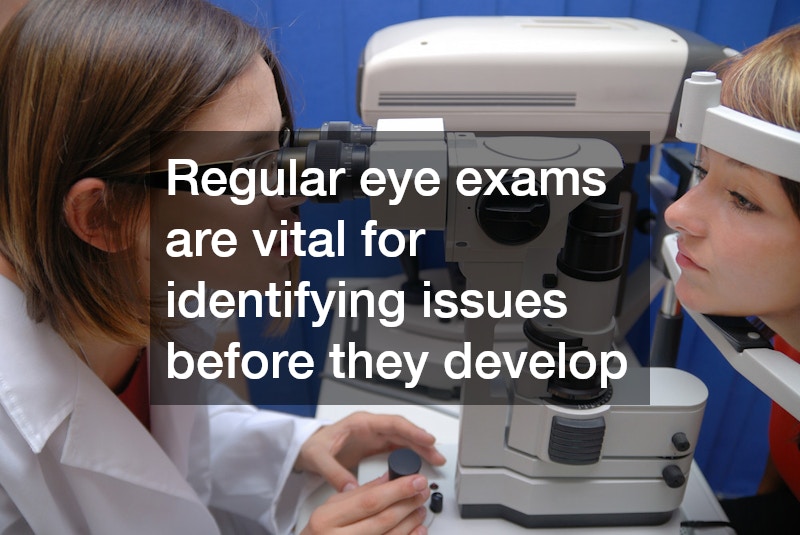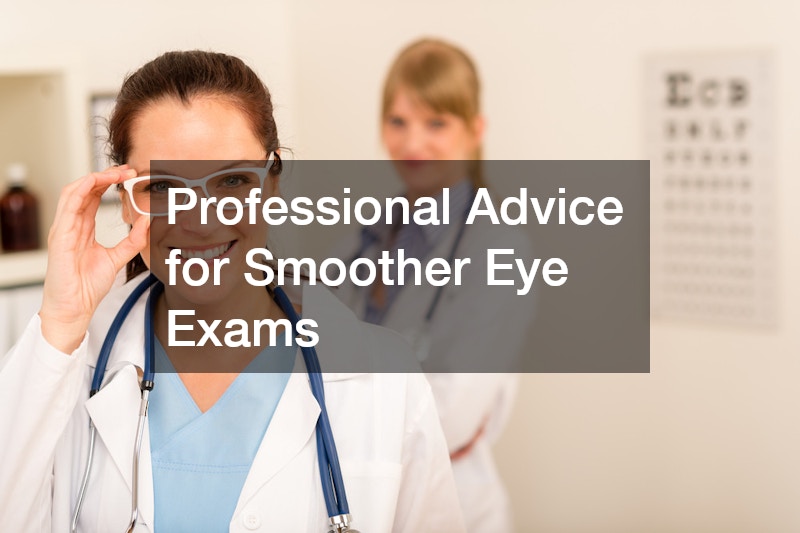Understanding professional insights and tips to ensure a more comfortable and effective experience during eye exams can bring both mental and physical relief. Read on to learn more.
Learn What to Expect
Understanding the procedures and tests that will be performed can help reduce anxiety before your appointment. During an eye exam, you may undergo several tests, including visual acuity tests, refraction assessments, and eye pressure measurements.
Each test plays a crucial role in assessing your eye health and vision clarity. Knowing what to expect can ease the apprehension often felt before these checks.
Your eye care professional will begin with a discussion about your medical history, which may include questions about any vision problems or ocular diseases in your family. This background helps the doctor tailor the exam to your individual needs better. Taking the time to understand your history can lead to more accurate assessments.
Finally, many practices have incorporated advanced technology into their exams, such as digital retinal imaging and optical coherence tomography. These innovations allow for more precise diagnostics and are often preferred by eye care providers. Learning about these technologies can prepare you further for what lies ahead.
Learn How to Prepare
To prepare for your eye exam, gather any necessary information, such as your previous medical records, a list of medications you are taking, and a copy of your insurance card. This preparation can streamline the visit and help your eye care professional better understand your health needs. By coming prepared, you allow for a more efficient appointment.
Also, consider writing down any questions or concerns you have regarding your vision or eye health. This will ensure you don’t forget to address important topics during the consultation. Talking about what’s on your mind can also foster a better physician-patient relationship and help you feel more at ease.
Avoid wearing contact lenses for a few hours before your exam, as doing so can affect the accuracy of certain tests. Additionally, if you typically wear glasses, bring them along to your appointment. This preparation is essential for accurate measurements and assessments of your vision and eye health.
Learn the Importance of Exams
Regular eye exams are vital for identifying issues before they develop into severe health problems. Conditions such as glaucoma, diabetic retinopathy, and macular degeneration often have no early symptoms. By having routine check-ups, these conditions can be detected and managed early, significantly improving outcomes.
Moreover, eye exams can help identify systemic health issues that may manifest through vision changes, such as hypertension or diabetes. Eye care professionals often have the ability to spot these conditions due to the unique insights they gain during exams. Maintaining regular visits supports overall health, not just eye health.
Additionally, regular check-ups allow your eye care provider to stay updated on any changes to your vision over time. This ongoing observation ensures that any necessary prescriptions for glasses or contact lenses are current. It ultimately promotes a better quality of life, allowing you to see the world clearly and comfortably.
Learn to Handle Anxiety
If you feel anxious about your upcoming eye exam, it’s important to communicate your fears with your eye care provider. Medical professionals are accustomed to dealing with anxious patients and can provide reassurance and support during the exam. Open dialogue about your concerns often helps in alleviating stress.
Consider bringing a friend or family member with you to your appointment. Their presence can provide emotional support and help distract you from your anxiety. Having someone familiar nearby during the exam can make a significant difference in how comfortable you feel throughout the process.
Moreover, practicing relaxation techniques prior to your visit can effectively manage anxiety. Breathing exercises, visualization, and even mindfulness can be beneficial. These strategies provide a sense of control and calmness to help you navigate the experience more easily.
Learn How to Choose a Professional
Choosing the right eye care professional is crucial for receiving quality care. Start by seeking recommendations from friends, family, or even your primary care physician to identify reputable optometrists or ophthalmologists. Personal recommendations can serve as a reliable guide to finding someone who meets your specific needs.
Researching credentials and experience is also important. Look for professionals who are board-certified and have a good standing within the medical community. Many eye care providers will have their own websites or profiles where you can review services, patient testimonials, and areas of expertise.
Finally, consider the office environment and accessibility. A comfortable clinic atmosphere, along with convenient office hours, can significantly enhance your overall experience. Schedule an initial consultation to gauge your comfort level with the practitioner and assess whether their approach aligns with your needs.
With the right preparation and understanding, your eye exam can be a smoother and more pleasant experience. Regular check-ups, familiarity with procedures, and healthy communication with your eye care provider are all crucial for ensuring optimal eye health. Don’t hesitate to prioritize your visual wellness.

